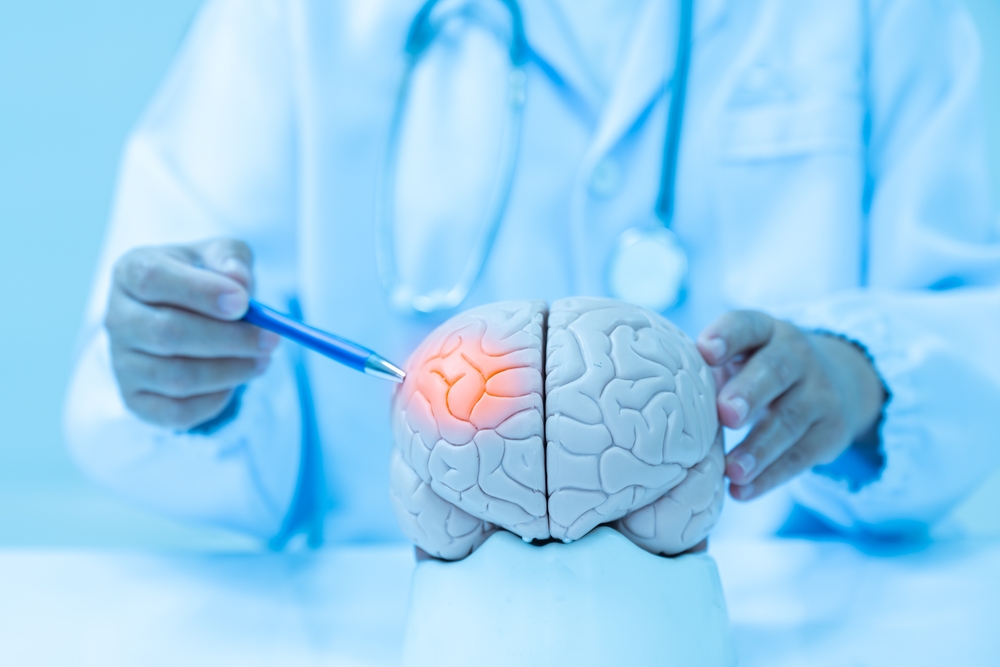Migraines are often misunderstood, and it’s not surprising that people don’t know how to deal with them. When you’re in the midst of a migraine attack, it can seem like the world is closing in on you, and there’s nothing you can do but suffer through it. But there are many ways to prevent migraines and manage symptoms when they do happen—so let’s take a look at what causes these headaches and how we can stop them from happening.
What Are Migraines?

Migraines are recurring headaches with throbbing pain on one side of the head. They usually affect one eye and parts of your face and neck muscles. Migraine pain is often accompanied by many other symptoms beyond just headaches. These include (1):
- nausea or vomiting
- sensitivity to light and sound
- dizziness or vertigo (feeling off balance)
- numbness or tingling in the affected area
- weakness or fatigue
- blurred vision or other visual changes like seeing spots before your eyes
- Tinnitus
Migraines affect about 1 billion people worldwide—about 1 in 4 women and 1 in 20 men will suffer from them at some point during their lives. About 8% of adults in the U.S.—more than 12 million Americans—experience migraines yearly. Despite this, there are actually very few doctors who specialize in migraines and know how to treat them. (2)
Read More: The Link Between Your Serotonin and Headaches and Migraines
Where Do Migraines Come From?

Migraines are thought to be due to a combination of genetic and environmental factors. Some people have a family history of migraines, which makes them more likely to get them themselves. Women are also twice as likely as men to get migraines, probably because of the hormonal changes that occur during pregnancy or menstruation. (3)
If you’ve had a migraine before, you’re more likely to get another one. And if you have a close family member with migraines, your chances are even higher. You may also be at greater risk if you smoke or drink alcohol heavily because these habits can cause blood vessels in the brain to expand and contract too quickly. (4)
What Are Common Migraine Triggers?

The first step toward preventing migraines is knowing what triggers them. If you can learn how to avoid those triggers, you can reduce the number of headaches you get each month. Here are some common migraine triggers:
- Stress
- Hormonal changes (for example, those that occur during menstruation and menopause)
- Sleep problems
- Certain foods or beverages, like chocolate, food preservatives (MSG), alcoholic drinks and certain wines
- Weather changes, such as extreme temperatures and barometric pressure
- Physical exertion (such as exercise)
- Smells and odors (for example, those from cleaning products or perfumes)
- Changes in your surroundings (for example, from a darkened room to bright daylight)
- Certain medications, such as birth control pills, hormone replacement therapy and other medicines that contain estrogen
Read More: 10 Natural and Effective Treatments For Headache and Migraine Relief
How To Prevent And Treat Migraines

Unfortunately, once a migraine starts, it is pretty hard to stop it. Knowing your triggers can help you prevent them from occurring in the first place. Knowing the symptoms, as well, can help you to put your treatment plan in action sooner. The sooner you recognize that a migraine is coming on, the more you can do to stop it from becoming unbearable.
Keep a headache diary. Write down what you ate and drank, any stressors in your life, times of the month when you get headaches and anything else that might trigger an attack. This can help you identify the things that trigger migraines for you. Then try to avoid them or limit how much they affect your daily life.
Get plenty of rest and exercise regularly. Exercise boosts endorphins (the brain’s natural mood enhancers), which may help prevent headaches. Eat a healthy diet. Foods that promote good digestion, such as whole grains, fruits and vegetables, may help prevent migraines. Stay well hydrated, as dehydration can also trigger migraines.
Take your medicine correctly. If you’re using prescription migraine medication, don’t skip doses or stop taking it abruptly — this can trigger withdrawal symptoms like dizziness and nausea.
The Bottom Line

While we don’t necessarily have a cure for migraines just yet, there is enough knowledge to help you prevent them and treat them faster. If you suffer from migraines, you must be strong and advocate for your health. This is because most doctors simply lack knowledge about this condition. Doing your own research and advocating for your needs will go a long way.
Finally, don’t wait or delay treatment. The longer you wait to put your treatment action plan in place, the worse your migraines will be. As soon as you notice the first symptoms, such as fogginess or seeing spots, take your medications. Write down everything you can think of that might have triggered that migraine so that you can have a deeper understanding of your triggers. Remember, you are the owner of your health. Take action to keep migraines few and far between, and when they do happen, not so long and devastating.
Read More: More symptoms than you think may be associated with your migraines
Sources
- “More symptoms than you think may be tied to your migraines.” CNN. Madeline Holcombe. March 29, 2023
- “Global epidemiology of migraine and its implications for public health and health policy.” Nature. Timothy J. Steiner and Lars Jacob Stovner. January 24, 2023.
- “Migraine.” NIH
- “Everything You Want to Know About Migraine.” Healthline. Rachel Nall, MSN, CRNA. October 27, 2021
Disclaimer: This information is not intended to be a substitute for professional medical advice, diagnosis or treatment and is for information only. Always seek the advice of your physician or another qualified health provider with any questions about your medical condition and/or current medication. Do not disregard professional medical advice or delay seeking advice or treatment because of something you have read here.

